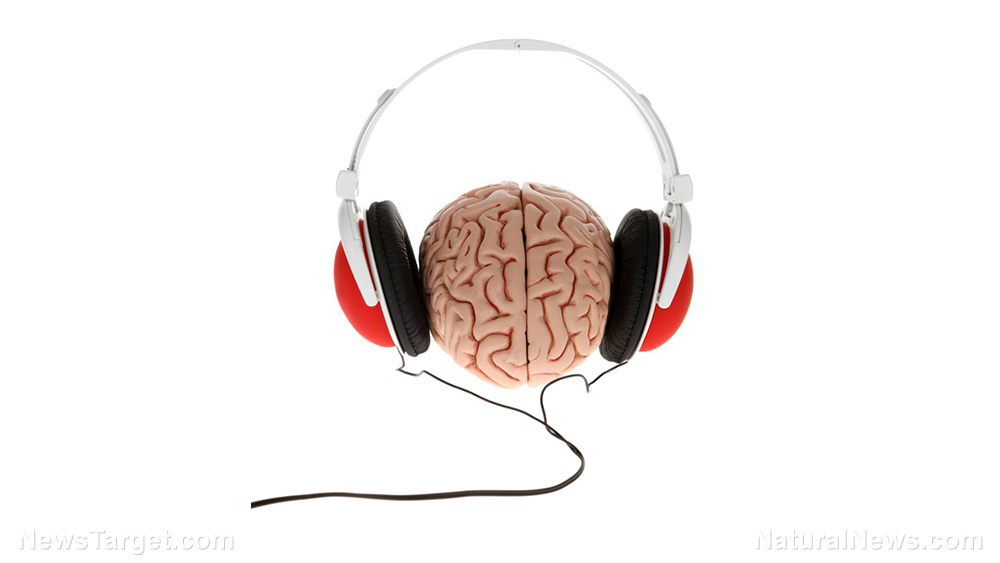Signs of abnormal mental development and common disorders in children
06/27/2023 / By Zoey Sky

All parents want the best for their children. But recognizing mental illness in kids can be difficult even for the most loving parents, which can result in missed opportunities for early treatment.
If you notice that your children are struggling with their homework and not functioning effectively at home, school and other social environments, it might be time to check if they have signs of abnormal mental development or mental health issues.
What causes mental health issues in children?
Mental health problems in children refer to difficulties or disruptions in their “normal development of thinking, behaviors, social abilities and emotional regulation appropriate for their age.”
Stress can cause serious mental health issues or problems linked to mental health for certain children, such as anxiety, depression, eating disorders or self-harm.
Children are more likely to develop mental health disorders when exposed to these traumatic experiences:
- Being abused
- Being bullied in school
- Brain injuries
- The death of someone close, like a family member or their best friend
- Having a long-term illness
- Moving home or changing schools
- Parents separating
- Peer pressure
- Witnessing domestic violence
Warning signs of mental illness in children
Watch out for these warning signs of mental illness in children:
- Avoiding social interactions
- Changes in academic performance
- Changes in eating habits
- Difficulty concentrating
- Difficulty sleeping
- Drastic changes in behavior, mood or personality
- Frequent headaches or stomachaches
- Hurting oneself or talking about hurting oneself
- Outbursts or extreme irritability
- Out-of-control behavior that can be harmful
- Persistent sadness
- Purposely avoiding or missing school
- Weight loss
Common disorders among children
Mental health disorders can affect children of all ages, and these illnesses can have a significant impact on their overall well-being, development and functioning.
If you observe several warning signs of mental illness in your child, they might have one of these common mental health disorders:
Anxiety disorders
Anxiety disorders include generalized anxiety disorder, separation anxiety and social anxiety.
Children with anxiety disorders may experience symptoms like excessive worry, fear and avoidance of certain situations or activities.
Attention-deficit/hyperactivity disorder (ADHD)
If your child has ADHD, they might have difficulty focusing, sitting still and controlling their impulses.
They may also struggle with planning and time management.
Autism spectrum disorder (ASD)
Autism spectrum disorder (ASD) is a developmental disorder that affects a child’s ability to communicate, socialize and interact normally with others.
If your child has ASD, they may struggle with nonverbal communication. They might also have repetitive behaviors or interests and be sensitive to sensory stimuli.
Bipolar disorder
Bipolar disorder is a mental health illness characterized by periods of extreme mood swings, including episodes of mania or hypomania and depression.
A child with bipolar disorder may have difficulty regulating their emotions, engage in risky behaviors and have trouble with relationships.
Conduct disorder
Conduct disorder can make a child engage in aggressive or antisocial behaviors, like fighting, bullying, lying or stealing.
They may also have difficulty obeying rules and respecting authority figures.
Depression
Children with depression may experience sadness, hopelessness and loss of interest in activities and hobbies they used to enjoy. They may also have trouble eating, sleeping and concentrating. (Related: More children in the UK require mental health services due to government and media fear propaganda over COVID-19.)
Eating disorders
Anorexia nervosa, bulimia nervosa and other eating disorders can affect both children and adults.
Eating disorders involve excessive concern with food, your body shape and weight. It can also cause serious physical and mental health problems.
How to improve your child’s mental health
If you think your child may have signs of mental health issues, here are some tips that can help:
Consult a mental health provider
Consulting a mental health provider is the first step to helping improve your child’s mental health.
Research their specific disorder
Learning about your child’s mental health disorder, including common signs and symptoms, potential triggers and effective treatment options can help improve their condition.
Teach them the importance of self-care
Teaching your child the importance of self-care, such as getting enough sleep, eating a healthy diet and engaging in physical activity can help them improve their physical and mental health.
Foster a supportive environment
If your child has trouble with school, provide them with a supportive environment at home and in school. This can help your child manage their mental health.
This includes establishing routines, setting boundaries and providing emotional support.
Try to make school fun for your child. Enrolling them in a preschool or similar community program when they are young can give them a chance to spend time with other children and make new friends.
Foster social connections
If your child is shy due to their mental health or developmental issues, encourage them to join in social activities, like school clubs, sports or community events. These activities can help them build social connections and develop a sense of belonging.
Monitor their progress
Regularly check in with your child’s mental health provider to monitor their progress. Make adjustments to their treatment plan as needed.
As a parent, it’s normal to worry about your child’s development. Learning about the warning signs of abnormal mental development and common disorders in children can help you take action early and help your child get the support they need.
Keep in mind that each child develops at their own pace and that early intervention can help make a significant difference in their mental health and development.
Visit Mental.news for more tips on how to improve a child’s mental health.
Watch the video below to know more about mental health, intrusive thoughts, depression and anxiety.
This video is from the Pool Pharmacy channel on Brighteon.com.
More related stories:
Alabama school districts sue social media companies for causing youth mental health crisis.
Brain food: Nutrient therapy can help address mental health issues.
Magnesium: An underappreciated nutrient for brain health and mental well-being.
Sources include:
Submit a correction >>
Tagged Under:
adhd, anxiety, anxiety disorder, beat depression, brain function, brain health, children's health, depression, depression symptoms, mental health, mind body science, neurological conditions, stress, time management, tips
This article may contain statements that reflect the opinion of the author
RECENT NEWS & ARTICLES
HealthScience.News is a fact-based public education website published by Health Science News Features, LLC.
All content copyright © 2018 by Health Science News Features, LLC.
Contact Us with Tips or Corrections
All trademarks, registered trademarks and servicemarks mentioned on this site are the property of their respective owners.




















